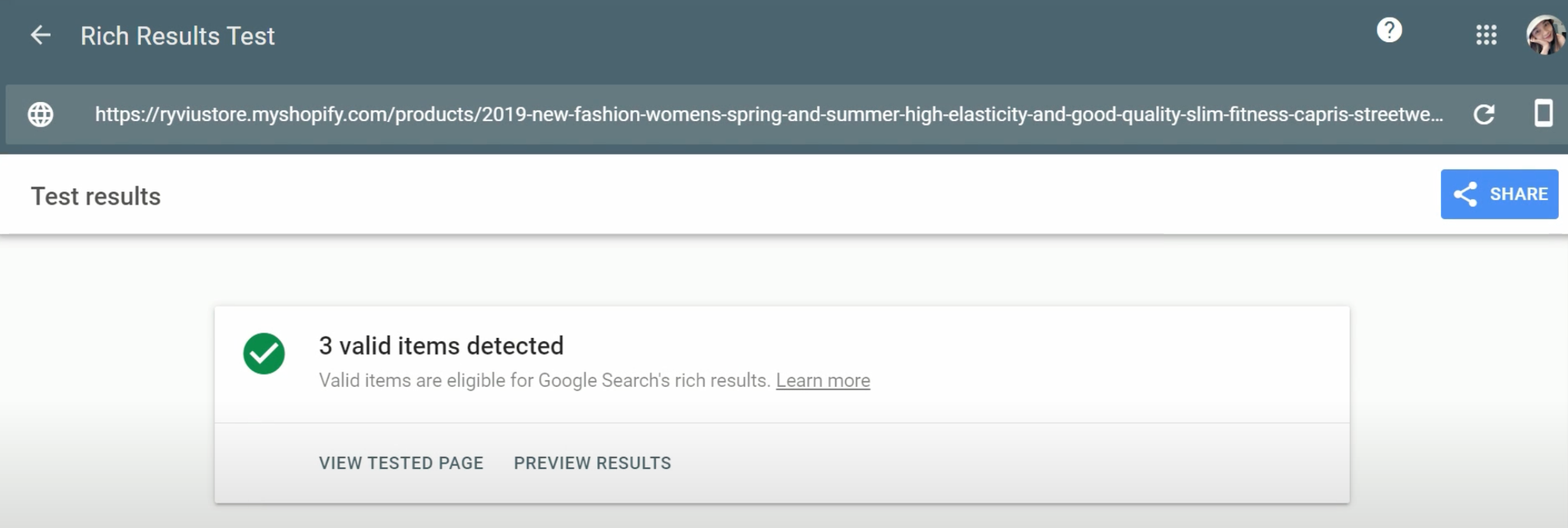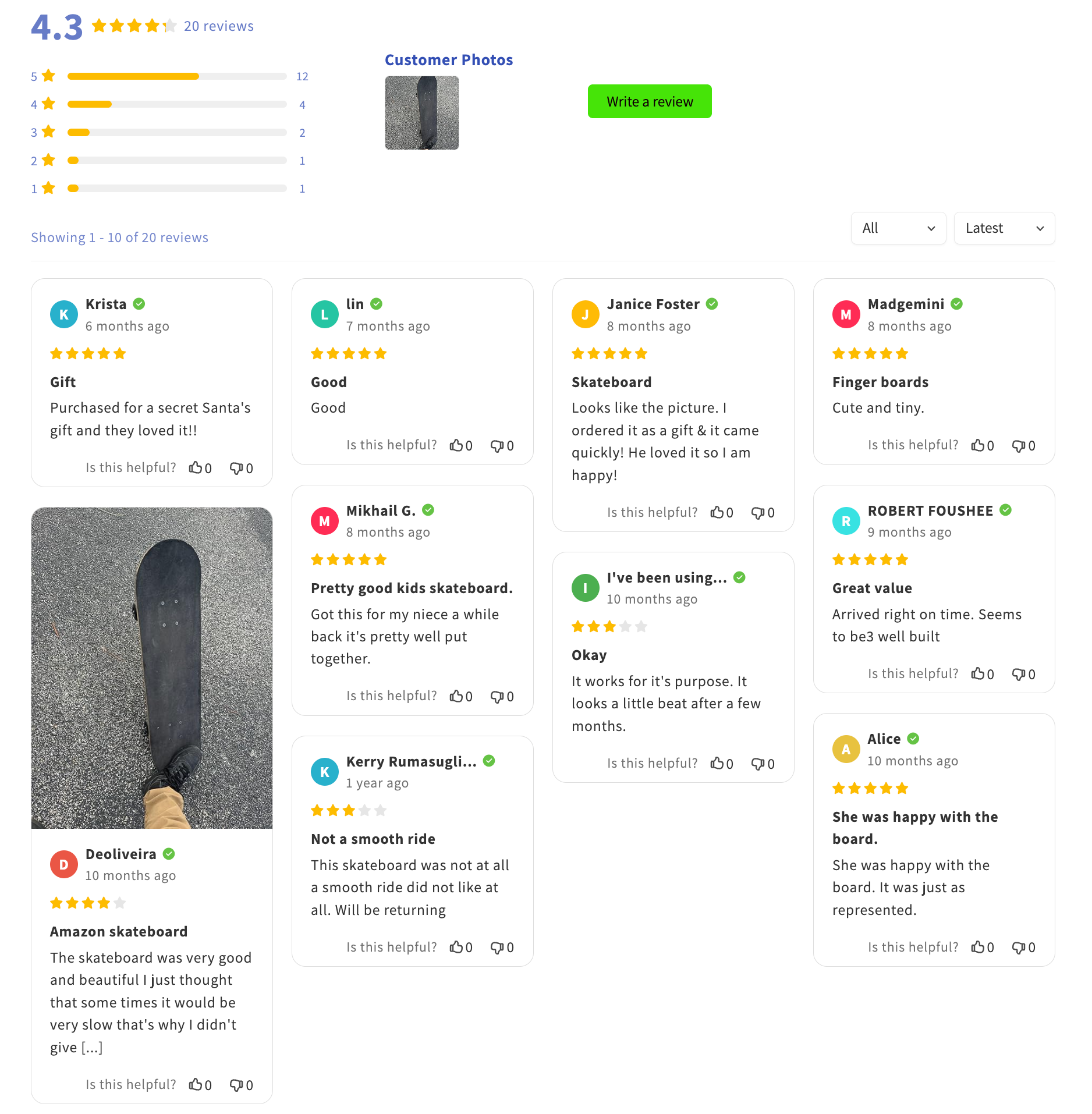
Customer reviews have become a cornerstone of online shopping. Beyond influencing purchasing decisions, they play a crucial role in improving search engine optimization (SEO) for eCommerce stores. From user-generated content to rich snippets in search results, reviews affect multiple aspects of SEO performance. This article explores why reviews are essential for eCommerce SEO, how they influence search rankings, and the best practices for leveraging them effectively. We’ll also highlight how tools like Ryviu make it easier for Shopify merchants to harness the full SEO power of reviews.
Customer reviews are more than just opinions and they’re a steady stream of content, keywords, and trust signals that improve both user experience and search visibility.
Search engines love fresh content because it signals that a page is active and relevant. Reviews constantly update product pages with new words, phrases, and perspectives, turning otherwise static descriptions into evolving sources of information. This ensures search crawlers regularly revisit your site, keeping your pages in the index and improving their chances of ranking higher.
Customers naturally write in the language they use when searching for products. This often introduces long-tail keywords that merchants might not include in their descriptions. For example, a review like “perfect yoga mat for hot yoga classes” helps the product page rank for a niche search query. Over time, these organic keywords accumulate, making the store visible for more search intents.
Trust is a key factor in both conversion rates and search engine rankings. A product with hundreds of reviews signals reliability, encouraging shoppers to buy. For search engines, the presence of reviews shows that real people are interacting with and validating your site, making it more authoritative compared to stores with little or no user engagement.
Reviews influence rankings in several ways—directly through content and schema markup, and indirectly through user behavior and engagement.
Reviews enrich product pages with natural, keyword-rich text that reduces duplicate content issues. Many eCommerce stores rely on manufacturer-provided descriptions, which Google may treat as duplicate content. Reviews add originality, making your page stand out. They also provide detailed insights (e.g., size, usability, durability) that make your pages more relevant for specific queries.
By adding structured data (schema markup), reviews can appear in search results with star ratings and review counts. These rich snippets make your listing visually stand out from competitors, attracting more clicks. A higher click-through rate (CTR) is a positive signal for Google, which may reward your page with even better rankings.
For businesses with physical locations, reviews on Google Business Profile play a huge role in local SEO. Positive reviews improve your chances of appearing in the local “3-pack” map results, which drives both online traffic and offline footfall. Reviews often include location-specific keywords, such as “best bakery in los angeles”, which further strengthens local search visibility.

Search engines pay close attention to how users interact with your site. Reviews increase engagement by keeping visitors on the page longer as they read experiences from other buyers. This lowers bounce rates and increases dwell time, both of which signal to search engines that your page is valuable.
Google evaluates sites based on E-E-A-T. Reviews contribute to “experience” and “trustworthiness,” showing that real customers have interacted with the product. A large number of authentic reviews can strengthen your store’s reputation, helping you rank higher against competitors who lack such signals.
Simply having reviews on your site isn’t enough. To fully benefit from the SEO and trust-building potential of reviews, eCommerce businesses must adopt a structured, strategic approach. Below are the best practices that ensure reviews positively impact both customer experience and search rankings.
Search engines reward fresh content, and reviews provide it naturally. Instead of collecting reviews sporadically, aim for a steady flow so your product pages always look active and relevant. You can automate review requests by sending follow-up emails a few days after purchase or offering small incentives like loyalty points or discount codes for completed reviews. This ensures a constant stream of user-generated content, which keeps your site fresh in Google’s index.
Schema markup is the language search engines use to understand your content better. By adding review schema, your product pages can show star ratings, review counts, and other details directly in search results. These rich snippets make your store more eye-catching compared to competitors without them. More importantly, higher click-through rates from enriched listings can boost rankings over time.
Where you display reviews matters. Position them close to the product description or call-to-action (CTA) button so that customers can easily see social proof before making a purchase decision. Consider adding filters such as “most helpful” or “verified buyer” to highlight the most impactful reviews. Placing reviews in multiple locations, like on collection pages or a dedicated testimonials section, can further increase engagement and time spent on site, both strong SEO signals.
Many merchants overlook the importance of engaging with reviews. Responding to both positive and negative feedback shows authenticity, builds stronger customer relationships, and adds additional keyword-rich content to your pages. A thoughtful reply to a negative review can turn a poor experience into an opportunity, showing future customers that you value feedback and handle issues transparently. This interaction keeps your pages active, which search engines interpret as a sign of trustworthiness.
Reviews often contain phrases customers naturally use when searching for products. For example, if multiple buyers describe your shoes as “perfect for wide feet,” that phrase may represent a valuable long-tail keyword. Track these patterns and integrate them into your product descriptions, titles, or blog content. This not only aligns your store with real customer language but also improves your chances of ranking for search terms with high purchase intent.
Don’t limit reviews to product pages. Repurpose them in email campaigns, social media posts, and even paid ads. Sharing authentic customer voices across multiple platforms reinforces trust and creates more entry points to your store. Plus, reviews embedded in blogs or landing pages add more content for search engines to crawl, expanding your SEO reach.
While best practices set the foundation, executing them consistently can be challenging for busy store owners. This is where Ryviu, a powerful Shopify review app, simplifies the process. It doesn’t just collect reviews, but it ensures they actively contribute to your SEO strategy.
Ryviu automates the review collection process by sending follow-up requests and making it easy for customers to leave feedback. It also allows you to import reviews from marketplaces like AliExpress and Amazon, giving new stores instant access to authentic, keyword-rich content. This keeps your pages fresh without the manual effort of asking every customer individually.
Page speed is a critical SEO factor, and bulky widgets can slow sites down. Ryviu solves this with lightweight, optimized widgets that display reviews beautifully without sacrificing loading time. This balance ensures that reviews enhance engagement while maintaining fast performance, which Google prioritizes in rankings.
Instead of hiring a developer to set up structured data, Ryviu includes built-in schema markup. With just a few clicks, your product pages can display star ratings, review counts, and other details in Google search results. This increases visibility, attracts more clicks, and improves the likelihood of outranking competitors who lack rich snippets.

Every store is unique, and Ryviu provides customizable layouts so reviews fit seamlessly with your design. You can highlight verified reviews, filter by rating, or feature the most recent feedback. This flexibility keeps shoppers engaged longer, improving on-page SEO metrics like dwell time and reducing bounce rates.
Ryviu helps merchants uncover valuable insights hidden in reviews. By analyzing customer language, you can identify recurring terms that reflect what buyers are searching for. This enables you to optimize product descriptions and titles with real customer keywords, aligning your SEO strategy with authentic search behavior.
Reviews collected with Ryviu aren’t limited to your product pages. You can easily showcase them on homepage carousels, collection pages, or even export them for use in marketing campaigns. This ensures your reviews work across multiple channels, amplifying their SEO and trust-building impact.

Reviews are far more than customer opinions. They’re considered a critical SEO asset for eCommerce businesses. They add fresh, keyword-rich content to your product pages, generate trust signals for both customers and search engines, and enhance visibility through rich snippets and local SEO. When managed effectively, reviews improve engagement, conversions, and overall search performance.
For Shopify merchants, using a tool like Ryviu makes collecting, displaying, and optimizing reviews seamless. It transforms reviews into powerful SEO drivers, ensuring your store stands out in competitive search results. If you want to grow your eCommerce presence, start viewing reviews not just as feedback, but as one of your most valuable SEO strategies.


Reducing visual noise isn’t about removing content blindly, it’s about clarifying intent. By simplifying presentation, strengthening hierarchy, and removing unnecessary distractions, you make it easier for shoppers to focus, evaluate, and decide. Below are practical, UX-focused strategies to reduce visual clutter while preserving persuasion and trust.
In this ultimate beginner’s guide, we’ll explore what eCommerce category structure really is, why it plays such a critical role in usability and conversions, how to plan it correctly, and how to avoid common mistakes that hurt store performance.
To help you make informed decisions, this article provides a deep comparison of Soft and Hard CTAs, clear verdicts for each factor, and a detailed explanation of how to use both together effectively.